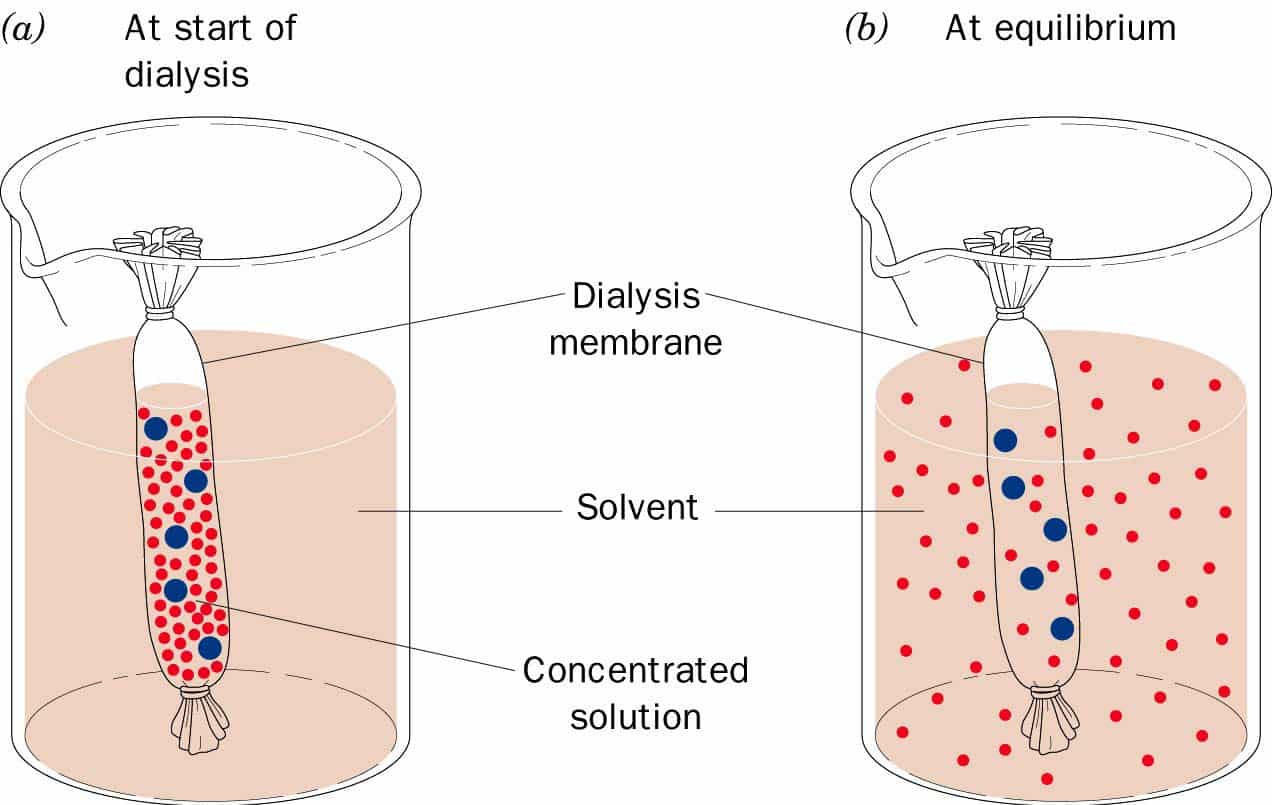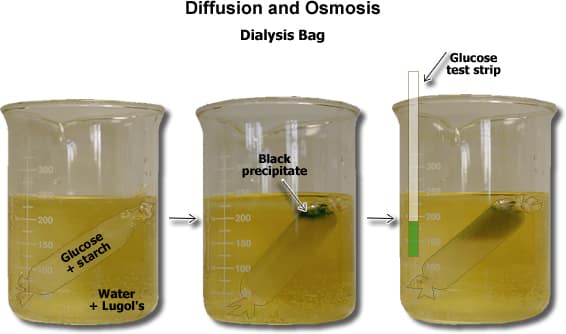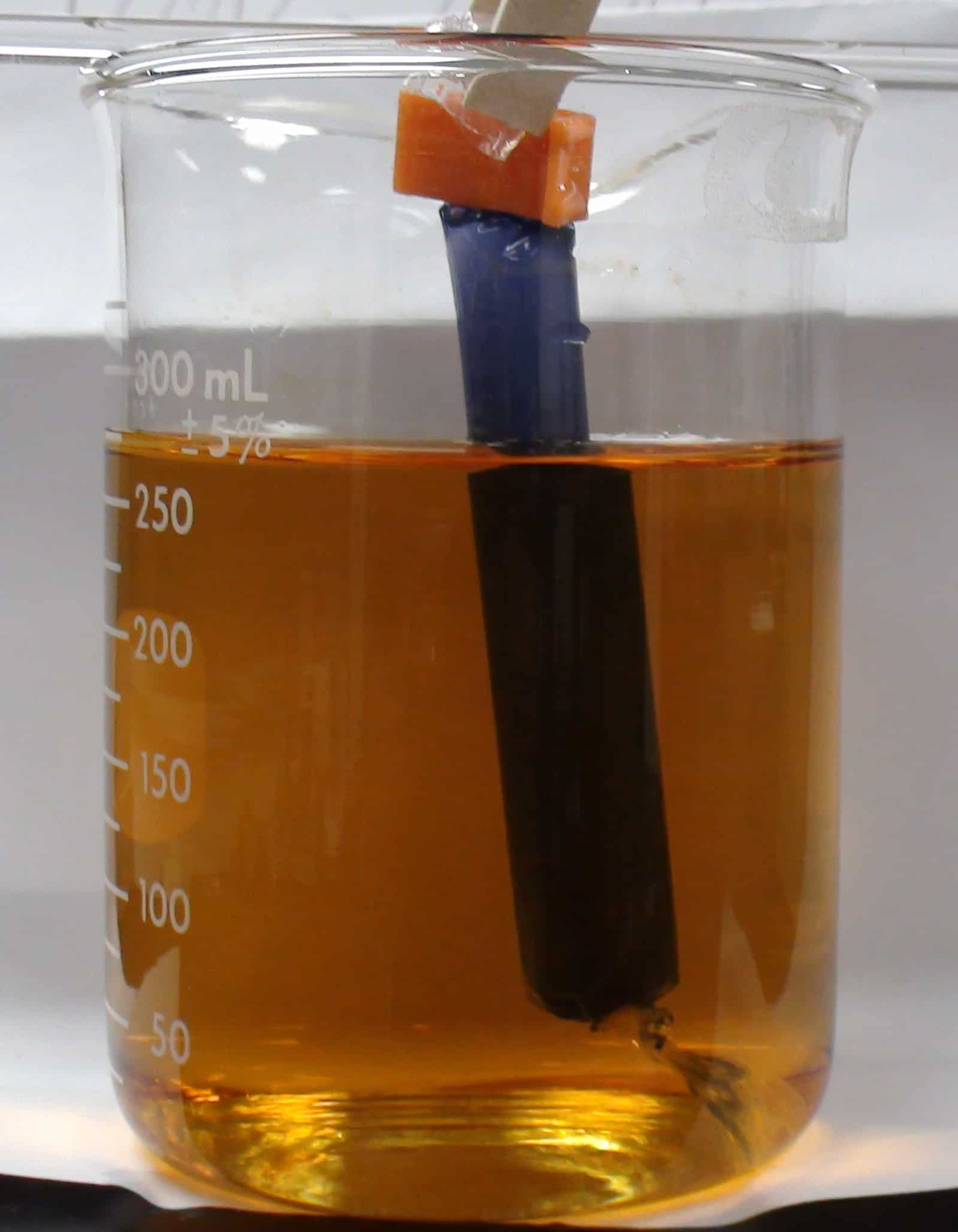Can Starch Pass Through Dialysis Tubing
What substances can pass through dialysis tubing. Starch does not pass through the synthetic selectively permeable membrane because starch molecules are too large to fit through the pores of the.

Selective Permeability Of Dialysis Tubing Lab Explained Schoolworkhelper
Starch does not pass through the synthetic selectively permeable membrane because starch molecules are too large to fit through the pores of the dialysis tubing.

. To test for diffusion and osmosis occurring the packet of tied-closed water-filled dialysis tubing was placed in the beaker containing the 50 glucose 50 starch solution. Can corn starch cross the dialysis tubing by diffusion. The size of the minute pores in the dialysis tubing determines which substance can pass through the membrane.
Is starch permeable to dialysis tubing. The dialysis tubing is selectively permeable because substances such as water glucose and iodine were able to pass through the tubing but the starch molecule was too large to pass. The salt ions can not pass through the membrane.
A solution of glucose and starch will be placed inside a bag of. Additionally does starch pass through dialysis tubing. Starch does not pass through the synthetic selectively permeable membrane because starch molecules are too large to fit through the.
The dialysis tubing is selectively permeable because substances such as water glucose and iodine were able to pass through the tubing but the starch molecule was too large to pass. Water molecules can pass through the membrane. Can starch pass through dialysis tubing.
The dialysis tubing is selectively permeable because substances such as water glucose and iodine were able to pass through the tubing but the starch molecule was too large. Iodine has a molecular weight of roughly 126 so it can pass through. What substances Cannot pass through dialysis tubing.
Only allowing smaller molecules to pass through it. Water molecules can pass through the membrane. The Dialysis tubing provides a semi-permeable membrane.
The dialysis tubing is a semipermeable membrane. The dialysis tubing is selectively permeable because substances such as water glucose and iodine were able to pass through the tubing but the starch molecule was too large. The salt ions can not pass through the membrane.
On the other hand starch. The dialysis tubing is selectively permeable because substances such as water glucose and iodine were able to pass through the tubing but the starch molecule was. Dialysis tubing has a limit of roughly mwco molecular weight cut off of 10000.
How can starch pass through dialysis tubing. A solution of glucose and. No because start molecules are too big to fit through the tubing.
455 15 votes. The dialysis tubing is selectively permeable because substances such as water glucose and iodine were able to pass through the tubing but the starch molecule was too large to pass. The dialysis tubing is selectively permeable because substances such as water glucose and iodine were able to pass through the tubing.
The size of the minute pores in the dialysis tubing determines which substance can pass through the membrane. The size of the minute pores in the dialysis tubing determines which substance can pass through the membrane. Starch does not pass through the synthetic selectively permeable membrane because starch molecules are too large to fit.
What will happen if a dialysis bag filled with water is placed in a. Will fructose pass through dialysis tubing. A solution of glucose and starch will be placed inside a bag of dialysis tubing.

Selective Permeability Of Dialysis Tubing Lab Explained Schoolworkhelper

Diffusion Of Water Glucose And Starch Through A Dialysis Bag Youtube

Selective Permeability Of Dialysis Tubing Lab Explained Schoolworkhelper

Selective Permeability Of Dialysis Tubing Lab Explained Schoolworkhelper
Comments
Post a Comment